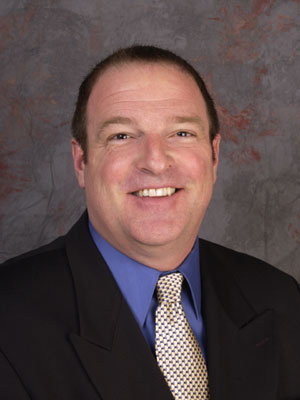

LBREPORT.COM CONGRATULATES FRIENDS OF LB ANIMALS, A LB HONOREE IN "MAKE A DIFFERENCE DAY"
Become A Hero To LB Animals With A $15 Membership. Learn About Us, Click Here.

Saving Lives Thru Spay/Neuter & Education





3853 Atlantic Ave.
|
Click here |
Some House Dems Urged Schwarzenegger On April 19 To Oppose Parts of House Energy Bill, Incl. LNG Provisions Affecting LB
(April 21, 2005) -- With a The letter -- which forewarned that the bill could come to the House floor as soon as April 20 (as it did) -- was spotted by LBReport.com in the Congressional Record after it was inserted by Cong. Anna Eshoo (D., Palo Alto) during April 20 House floor debate on the bill. We post the letter's text below. It is signed by several House Democrats...but no LB House members.
At the April 19 City Council meeting, City Attorney Bob Shannon said staff in the office of Sen. Dianne Feinstein (D, CA) had urged LB officials and others to press Governor Schwarzenegger to object to the bill's LNG provisions.
LB City staff didn't mention the April 19 letter to Schwarzenegger during the April 19 Council meeting when several Councilmembers agreed with City Attorney Shannon that LB and its representatives should press Gov. Schwarzenegger on LB impacting LNG and coastal issues.
Asked by LBReport.com this morning [April 21] whether City Hall's legislative advocate, E. Del Smith (who also represents the Port of LB under a separate Port-paid contract) had told LB city staff about the letter, Tom Modica in the City Manager's office said he was personally unaware of it if this had been done.
City staff also didn't indicate that debate on the bill would begin the next day (April 20).
As separately reported by LBReport.com, by the time the Council was meeting on April 19 to the discuss the pending bill, the House Rules Committee had already voted to adopt a rule limiting debate on the LNG provision to ten minutes (five on each side) with discussion of the bill readied for April 20.
As previously reported by LBReport.com, on April 4 two members of the Schwarzenegger administration, plus the Lt. Gov., all of whom are members of CA's Ocean Protection Council, wrote a letter to House Democrats -- but not House GOP leaders who are in the controlling majority -- objecting to the FERC supremacy language in the bill.
LBReport.com posts the April 19 letter by House Dems to Gov. Schwarzenegger below:
[begin text]
Washington, DC April 19, 2005 Re House Consideration of Comprehensive Energy Legislation. Hon. ARNOLD SCHWARZENEGGER,
DEAR GOVERNOR SCHWARZENEGGER, On April 13th, our committees (the House Committee on Energy and Commerce and the House Committee on Resources) completed work on elements of a comprehensive energy bill that will come before the full House of Representatives as soon as April 20th. After participating in the debate and reviewing the products that emerged from our respective committees, we foresee serious dangers for the State of California if this legislation is enacted. While the delegation has received your letter supporting the removal of the participant funding section from the electricity title of the bill, we have not heard from you about other provisions that will more directly and immediately affect California. As we and other members of the delegation determine how to best represent the interests of our State, we believe it's important to understand your views on some of the key provisions before us as well as your overall position on the legislation. Most of the elements of the legislation are not new. They were part of the conference report on H.R. 6, which was considered by the House and Senate in 2003. Among the few new provisions are those that would further disadvantage our State. We've described below some of the provisions that we consider most troubling for California. LIQUEFIED NATURAL GAS (LNG) FACILITY SITING (NEW PROVISIONS) The bill will hand over exclusive jurisdiction for the siting of liquefied natural gas (LNG) facilities to the Federal Energy Regulatory Commission (FERC), preventing the states from having a role in approving the location of LNG terminals and the conditions under which these terminals must operate. In addition, states will have to seek FERC permission before conducting safety inspections, and they will be barred from taking any independent enforcement action against LNG terminal operators for safety violations. Finally, for the next six years, LNG terminal operators will be allowed to withhold underutilized capacity from other LNG suppliers. In other words, LNG terminal operators can legally exercise market power to drive up the cost of natural gas. When the El Paso Corporation and its independent affiliates allegedly conspired to withhold natural gas pipeline capacity in order to inflate the costs of natural gas and electricity in California in 2000 and 2001, the State sought relief from FERC and the courts. E1 Paso eventually agreed to a $1.5 billion settlement to partially compensate California consumers for its anticompetitive actions. Under this bill, it would become legal for an LNG terminal operator to engage in similar anticompetitive behavior. For these reasons, the provision is unanimously opposed by the California Public Utilities Commission, which, as you know, is fighting FERC in the courts for jurisdiction over an LNG terminal in the heart of the Port of Long Beach. This provision is also opposed by the California Ocean Protection Council, which includes two members of your cabinet, and the California Coastal Commission. EROSION OF STATES' RIGHTS UNDER THE COASTAL ZONE MANAGEMENT ACT (CZMA) (PROVISIONS FROM H.R. 6) The bill weakens California's rights under the Coastal Zone Management Act to object to a FERC-approved coastal pipeline or energy facility project when the project is inconsistent with the State's federally-approved coastal management program. Currently when there is a disagreement about a project, the Secretary of Commerce, through an administrative appeals process, determines whether and under what conditions the project can go forward. States can present new evidence supporting their arguments to the Secretary. Under this bill, states will not be allowed to present new evidence to the Secretary, and the Secretary will not be allowed to seek out evidence on his or her own. The Secretary will only be allowed to rely on the record compiled by FERC. Furthermore, the bill imposes an expedited timeline for appeals, which may not allow a full review of the facts. The California Coastal Commission and the California Ocean Protection Council oppose this provision. ENERGY RELATED FACILITIES ON THE OUTER CONTINENTAL SHELF (OCS) (PROVISIONS FROM H.R. 6) The bill will give the Department of Interior permitting authority for ``alternative'' energy projects, such as wind projects, situated on the Outer Continental Shelf (OCS). It also grants the Department of Interior authority to permit other types of energy facilities, including facilities to ``support the exploration, development, production, transportation, or storage of oil, natural gas, or other minerals.'' These facilities could be permitted within coastal areas currently subject to congressional moratoria on oil and gas leasing. (Again, both the California Coastal Commission and the California Ocean Protection Council have indicated that they oppose this provision.) ETHANOL MANDATE (PROVISION FROM H.R. 6) The Clean Air Act's two percent oxygenate requirement forces refiners selling gasoline in California to blend more ethanol into their fuel than is needed for air quality purposes. Instead of improving air quality, the unnecessary use of ethanol is increasing pollution in parts of the State, according to a preliminary report from the California Air Resources Board. The oxygenate requirement is also adding to the cost of fuel. Last year, you asked the U.S. EPA to waive the oxygenate requirement, and last week, 50 members of the California congressional delegation reiterated support for your request in a letter to Acting EPA Administrator Stephen L. Johnson. Under the energy bill coming before the House, however, California refiners will have to blend even more ethanol into their gasoline or pay (in the form of credit purchases) not to use it. Two years ago, a Department of Energy analysis of this provision indicated that it could add more than 8 cents to the cost of a gallon of gasoline. In a time of skyrocketing gas prices, this new mandate amounts to hidden tax on California motorists, which will subsidize a single industry located largely in the Midwest. While some have argued that the ethanol mandate will be a boon to California agriculture, we see no evidence to support this argument. According to the U.S. Energy Information Administration (EIA), the ethanol mandate will greatly expand production of corn-based ethanol, but only 0.2% of the nation's corn is produced in California. More important, EIA projects that the ethanol mandate will result in no increase in the production of cellulosic ethanol (ethanol made from agricultural and forestry residues and other resources), which is the primary type of ethanol that can be produced in California. MTBE LIABILITY WAIVER AND TRANSITION FUND (PROVISIONS FROM H.R. 6) The bill provides liability protection for the producers of the gasoline additive MTBE, hampering the efforts of local governments, water utilities, and others to hold producers and oil companies responsible for the costs of cleaning drinking water supplies that have been contaminated by MTBE. In California, South Lake Tahoe and Santa Monica have been able to reach settlements with the industry for the cleanup of their drinking water after successfully arguing that the industry sold a defective product. If the liability protection in the bill is enacted, then MTBE will be deemed a safe product and the industry will be relieved from virtually any obligation to pay cleanup costs. In June 2003, fourteen state attorneys general wrote in opposition to this provision, and the provision has been opposed by the U.S. Conference of Mayors, the National League of Cities, the National Association of Counties, the National Association of Towns and Townships, and the Association of California Water Agencies, among others. REFINERY REVITALIZATION (NEW PROVISIONS) This bill includes language which will require the Secretary of Energy to designate ``refinery revitalization zones'' in areas that have experienced mass layoffs or contain an idle refinery and have an unemployment rate that exceeds the national average by 10 percent. In areas that meet these criteria, the Secretary of Energy is given authority to site a new refinery within six months of receiving a petition for approval. The criteria outlined in the language would result in much of California being designated a ``refinery revitalization zone,'' from Imperial to East Los Angeles and north of San Jose. In fact, more than half of California's 53 congressional districts would be subject to these provisions. This language erodes the state, air board and communities permitting and enforcement authority for these refineries by granting sweeping new authority to the Department of Energy. The Department is empowered to coordinate and set binding deadlines for all federal authorizations and environmental reviews, including those currently conducted by air quality management districts. The Department of Energy, however, is not trained and experienced in issuing air permits and is not familiar with the various rules implemented by local agencies as part of the State Implementation Plan (SIP) required by the Clean Air Act. For these reasons, the South Coast Air Quality Management District has expressed serious reservations about this provision. PREEMPTING CALIFORNIA APPLIANCE EFFICIENCY STANDARDS (NEW PROVISION) An amendment added to the bill in the Energy and Commerce Committee will preempt California's new efficiency standards for ceiling fans, pending the implementation of a federal standard. The U.S. Department of Energy has been notoriously slow in propounding efficiency standards, falling years behind statutory deadlines for setting or updating efficiency standards for other appliances, such as air conditioners. Preempting California and forcing it to wait indefinitely for a federal standard runs completely against the State's effort to reduce electricity demand. Indeed, the ceiling fan standard is part of a California Energy Commission demand reduction package that will reduce peak power demand by 1,000 megawatts within 10 years, saving consumers $75 a year in energy costs and conserving as much power as can be generated by three large power plants. HYDROELECTRIC DAM RELICENSING (PROVISIONS FROM H.R. 6) The bill restructures the hydroelectric relicensing process to give special preference to dam operators. Other parties with legitimate interests in relicensing, including states, tribes, conservationists, farmers, and fishermen, would not be afforded the same opportunities. Under current law, federal resource agencies can impose conditions on a hydroelectric license for the protection of natural resources and wildlife. Under the bill a dam operator, and only a dam operator, will be entitled to a trial-type hearing before a resource agency to dispute the evidence that the agency uses to justify placing conditions on a license. The bill also requires resource agencies to accept alternative license conditions proposed by a dam operator. Otherwise, the agencies must meet nearly impossible standards to justify a decision to deny the alternative. River resources belong to more than dam operators. With licenses that last for up to 50 years, relicensing is one of the few chances to make sure that resources are adequately protected for all stakeholders. In California, there are more than 300 federally-regulated hydroelectric dams; over 200 will undergo relicensing in the next 10 to 15 years. Denying all stakeholders equal footing in the process is fundamentally unfair and is a recipe for protracted litigation. CONCLUSION We believe there are many other aspects of the legislation which will have a negative impact on our State, but these provisions clearly run contrary to the interests of California, and we believe they will undermine the policies and positions the State is pursuing under your Administration. Before the delegation votes on this legislation, Members should have the benefit of your views on these provisions and the bill as a whole. This legislation is too important a matter for the nation's largest state to be silent on. Although time is short, the issues we've outlined have been in the public domain for the past several months, going back to November 2003 in most cases. Therefore, we ask for your input before the House votes on this legislation this week. Thank you for timely consideration of this important request. Sincerely, Anna G. Eshoo,
Henry A. Waxman,
Lois Capps,
Grace F. Napolitano,
George Miller,
Hilda L. Solis
Contact us: mail@LBReport.com |